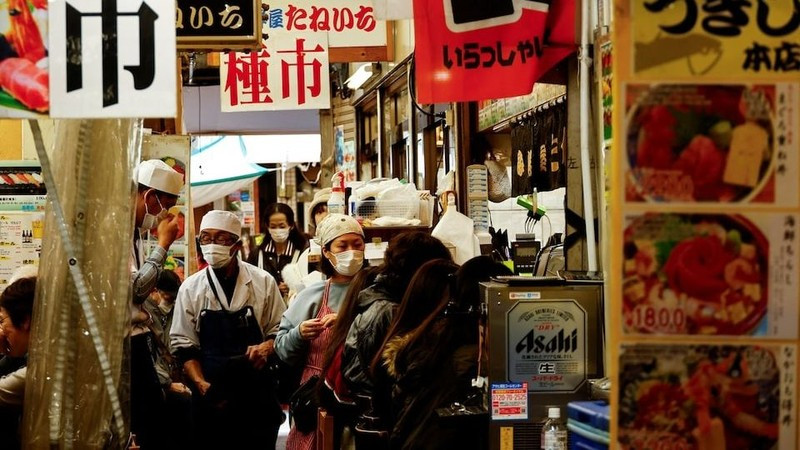In this massive economic stimulus package, the Japanese government will provide 13.9 trillion JPY to help finance the package, and consider spending 21,900 billion JPY to reduce the negative impacts of inflation on families.
Major obstacles facing the approval of the stimulus package have been removed after the ruling Liberal Democratic Party, its coalition partner Komeito and the opposition Democratic Party for the People (DPFP) agreed on a draft revision of the package.
The draft revision states clearly that the minimum annual income subject to taxation, which currently stands at 1.03 million JPY, will be discussed in talks on tax system reform, and then raised.
It also notes that gasoline tax cuts will be considered as part of a review of automobile-related taxes.
The three policy chiefs exchanged documents of agreement, and confirmed efforts to pass the supplementary budget for the current fiscal year as soon as possible to swiftly implement the economic package.
In a similar move, Bank of Japan (BOJ) Governor Kazuo Ueda left open the possibility of raising interest rates to curb inflation and ensure long-term economic growth.
The BOJ will continue to raise its policy rate if the economy and prices move in line with expectations, Ueda stated in a speech, adding that it is also closely monitoring the weakening yen. The Japanese currency has been under pressure after Donald Trump's victory in the US presidential election triggered a rally in the dollar.
Ueda’s remarks came amid speculation that the bank may lift borrowing costs as early as December, although he said the BOJ will make policy decisions at each meeting based on its latest assessment and outlook for economic and price activities.
He warned that if such adjustments are not made, there is a possibility that inflation could accelerate rapidly at some point in the future and force the BOJ to raise interest rates sharply.
On the timing of further increasing the policy rate, Ueda said the bank also needs to carefully monitor the US and other overseas economies.
The BOJ chief acknowledged the yen's depreciation has negatively impacted households and some companies and said the central bank has been paying close attention to economic factors influencing foreign exchange movements.
Regarding domestic economic indicators, he said he has seen “some progress”, pointing out that wages are rising as companies are passing on increased labour costs via higher service prices.
Ueda said that underlying inflation remains below the bank's goal of 2% but it is expected to gradually continue to rise, helped by a rise in wages.
The BOJ ended its negative rate policy in March with the first rate hike in 17 years, followed by another increase in July. It kept its policy rate unchanged at the September and October meetings.
The BOJ expects prices to rise 2.5% for the current fiscal year ending March and 1.9% for fiscal 2025 and 2026, below the bank's price stability goal of 2%, according to its latest outlook on the economy and prices released in October.
Japan's economic outlook is dotted with the bright colours of the tourism sector.
The country's hospitality industry has witnessed an explosion in the number of tourists. In the first 10 months of this year, Japan welcomed a total of 30.19 million international visitors, contributing a significant source of revenue to the economy. This is the first time the annual number has exceed 30 million since 2019.
It is estimated that tourists spent about 5.86 trillion JPY (37.72 billion USD) through September of this year. That figure eclipsed the 5.3 trillion JPY they spent in all of 2023, a record for any 12-month period.
















